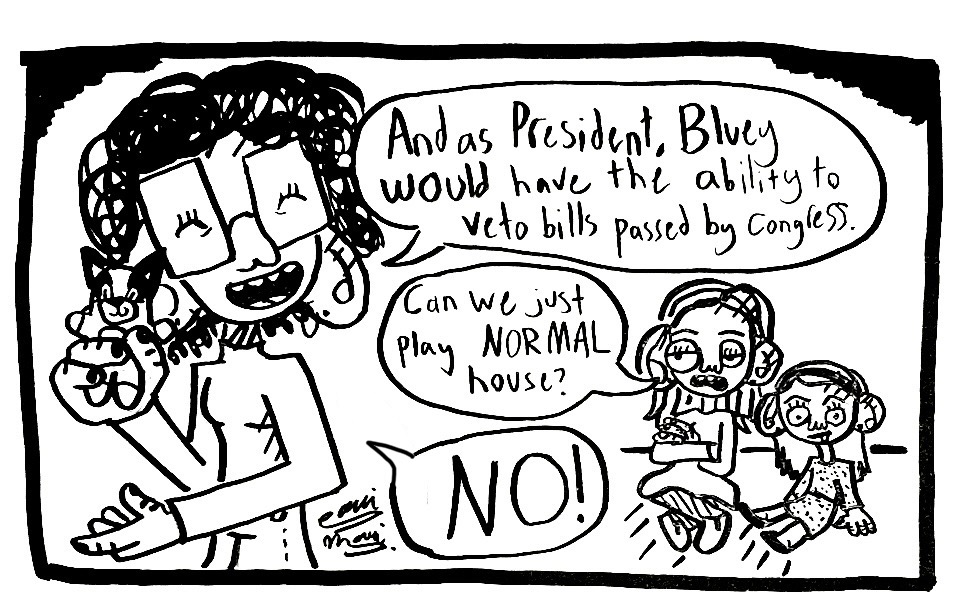On Thursday, we celebrated a grand tradition in this country with George W. Bush’s second inauguration, as all the pomp and pageantry came together in an effort to send the president on his way to the next four years in office.
More than 57 million of the people who voted in last November’s election hoped Jan. 20 would have been different. They, myself included, hoped that Thursday would mark the dawn of a Kerry administration and the beginning of a new era in the nation’s capitol as Bush was sent back to Texas.
Of course, things didn’t turn out that way. Now, we’re left with an administration’s policy reaffirmed, the Republican Party firmly in control and a nation that seems as divided as ever.
Yet, I’m hopeful. In his second term, Bush has the chance to properly finish initiatives he started and to begin work on his legacy – things that could make for an entirely different administration.
The goals I would give Bush in his upcoming term are simple ones that most people can agree with. Bush’s second term to-do list needs to include a renewed drive for compassion in America, an endeavor to rebuild alliances around the globe, a return to the issues that matter most and a concentrated effort to focus on posterity.
In his inaugural address on Thursday, Bush said, “Our country must abandon all the habits of racism because we cannot carry the message of freedom and the baggage of bigotry at the same time.” And I couldn’t agree more. For the United States to continue as a moral authority in the world, we must end the scourge of racism.
But it can’t stop there. Bush must end his party’s politics of division and hatred, and Republicans must stop using gay marriage as a means of getting voters to the polls. Homosexuals are Americans and tax paying citizens just like everyone else – they certainly don’t deserve to be treated like second-class citizens. Other minorities also warrant the administration’s attention and respect. Therefore, Bush must use compassion in his second term, reaching out across party, class and cultural lines.
A second goal for Bush should be to rebuild traditional alliances worldwide. The bonds of friendship between the U.S. and France, Germany and a great deal of Europe were strained by the war in Iraq. While we were able to prosecute the war in the early stages with little help outside of Great Britain, it has become painfully clear in the post-war occupation that we need help from our allies.
For peace to succeed in Iraq and in the world at large, the U.S. will need cooperation from as many countries as possible. To win back our allies, the Bush administration must be able to convince the world community that the country is still committed to the ideals of peace and diplomacy – an unenviable task to be sure.
Another top goal for President Bush should be a swift return to the country’s business. With campaigns growing longer each election cycle, most of 2004 and even parts of 2003 were devoted solely to achieving electoral victory. Now that the president has been reelected, we need to go back to the pressing needs of this country. Social Security – supposedly a top presidential priority – does need work, but we need an honest debate on the problem, not a privatization plan pushed down our throats. Education funding, healthcare reform and a comprehensive plan on Iraq are also areas that need the president’s immediate attention.
Above all, the president needs to focus on his legacy. Just because he was reelected does not insure favorable grades on history’s report card. Take Ulysses S. Grant, for example. The savior of the Union during the Civil War was elected president and then given a second term. Yet many historians view his presidency as largely a failure, one marked with scandal and inefficiency. Will George W. Bush be able to avoid the same fate? Ask my great-grandchildren in about 80 years or so.
Will this second term be any different than the first? Will Bush be able to reach across party lines to solve the problems that this country faces? I don’t know.
I’m hopeful. But I’m not holding my breath.
-The writer, a sophomore at the University of Alabama, is currently enrolled in the Semester in Washington program.




